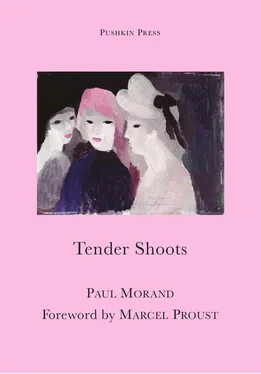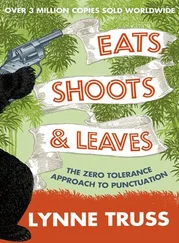Paul Morand - Tender Shoots
Здесь есть возможность читать онлайн «Paul Morand - Tender Shoots» весь текст электронной книги совершенно бесплатно (целиком полную версию без сокращений). В некоторых случаях можно слушать аудио, скачать через торрент в формате fb2 и присутствует краткое содержание. Год выпуска: 2011, Издательство: Pushkin Press, Жанр: Классическая проза, на английском языке. Описание произведения, (предисловие) а так же отзывы посетителей доступны на портале библиотеки ЛибКат.
- Название:Tender Shoots
- Автор:
- Издательство:Pushkin Press
- Жанр:
- Год:2011
- ISBN:нет данных
- Рейтинг книги:5 / 5. Голосов: 1
-
Избранное:Добавить в избранное
- Отзывы:
-
Ваша оценка:
- 100
- 1
- 2
- 3
- 4
- 5
Tender Shoots: краткое содержание, описание и аннотация
Предлагаем к чтению аннотацию, описание, краткое содержание или предисловие (зависит от того, что написал сам автор книги «Tender Shoots»). Если вы не нашли необходимую информацию о книге — напишите в комментариях, мы постараемся отыскать её.
Tender Shoots — читать онлайн бесплатно полную книгу (весь текст) целиком
Ниже представлен текст книги, разбитый по страницам. Система сохранения места последней прочитанной страницы, позволяет с удобством читать онлайн бесплатно книгу «Tender Shoots», без необходимости каждый раз заново искать на чём Вы остановились. Поставьте закладку, и сможете в любой момент перейти на страницу, на которой закончили чтение.
Интервал:
Закладка:
Delphine describes to me what her widowhood has been. Like a long, fruitless vigil in which, meticulously, she tried initially to detect signs of hope in herself.
“Leaving me alone and keeping me company,” she would say, “are the two worst favours anyone can do for me.”
Then, treacherously, she spent weeks in Paris in a similar state of anxiety, among different circles, in search of what she termed a system for living, or for not disappearing. She found little there apart from brief reprieves, in which her time was divided among creatures without radiance, bereft of any intelligence or atrophied by a hideous pursuit of pleasure. She refused their mediation.
I certainly recognised the same bravery as before in Delphine, but I perceived a lesser degree of resistance and, with every word, more vehement oscillations. I am no longer much accustomed to young women of my age, having paid only brief visits to France for exams in the course of recent years. Are they all like Delphine? The elder ones had always struck me as abysses of devotion, some dedicated to their duties, those who preferred pleasure imposing on themselves responsibilities no less onerous; all of them ultimately mindful of obligations, loving life and not in the least rebellious against the obstacles it offered them. Delphine, on the other hand, does not parade her selfishness as a disgrace; she treats it as a highly intelligent lesson, as a precise and respected concept that nonetheless exhausts her. She acknowledges her hard-heartedness, which is not the same as it was six years ago, but which was probably being primed then, with such independence that I refrain from thinking badly of her. I reckon that far from finding reasons for persevering, Delphine is waiting impatiently to destroy herself, which lends her a tolerable and fleeting grandeur.
By way of colonial offices shaped like waxen fruits, we reach Westminster Cathedral, which is some way away from the frenetic traffic that connects Victoria Station to the Thames; there I recognised the sanctuary of the new Catholic faith that had reached out over Anglican lawns at the end of the last century. The great British cardinals, Manning and Vaughan, demanded this testimony of piety and good taste, thanks to which prayer would be possible in a modern building. One could indeed rejoice at the sight of these honest, bare basilica walls, all in brick, although Delphine anxiously pointed out a darker line half way up, marking the imminent floodtide of a covering of all too precious marble beneath it, and modern mosaics above.
In front of the sanctuary, framed obliquely in the beams of a pale and fragmented sunlight, a gigantic Byzantine cross blocked the apse. A darkness, in which incense mingled with the fog from outside, shrouded the domes punctured by timorous windows. In spite of the array of chandeliers that resembled oriental headdresses, formed of layers of iron rings from which hung lights on chains, the cathedral was a massive monument and a public utility, like a Roman aqueduct or a railway station. Vespers was being said in the chapel of the Holy Sacrament; the organ was concocting great architectures of sound. On the other side of the brass railings some of the faithful were immersed in contemplation, two nurses, a City man kneeling in front of his top hat, a Chelsea pensioner in red uniform, an Indian Army officer in a turban; three priests were officiating on the altar. Her face in her hands, Delphine was silent. Then she turned to me, an equivocal look in her eyes, and gripped my arm.
“Why am I such a bad person?” she said. “Why do I like everything that’s bad?”
Having revealed her thoughts to me in this way, she then smiled.
“You are a very small someone to whom I can’t explain anything.”
She led me over to the side chapels where the same propensity towards an art anxious to avoid pomp and archaism was manifest. We passed St Patrick’s chapel, with its covering of Irish marble and the reredos encrusted in mother-of-pearl shamrocks. All the stones of the world, from Numidia, from Thessaly, from Norway, were beginning to pave the church in mercantile luxury. A black-and-white altar, reminiscent of an actress’s bathroom, the fruit of donations from great transatlantic banks, appeared to be reserved for South American devotions. A woman was kneeling on the first step, wrapped in a homespun cape with large pleats that resembled both a monk’s habit and a raglan coat. I leant forwards and saw, beneath a hood, a little girl’s face with make-up on, swathed in curly grey hair. Her forefinger, encumbered with a large emerald cabochon, was telling the beads of a rosary. I was about to draw Delphine’s attention to this Castilian visitor from the time of the Incas, when the lady turned round, and, recognising my friend, greeted her with three hurried and breathless words, uttered in a contralto voice.
Thus did I make the acquaintance of Pepita Warford, an Englishwoman of Cuban extraction, patroness of the convent where Delphine resided. She came up to us, kissed her, spoke to us about the Holy Virgin, about the breeding of marmosets and the advantages of nocturnal life. Delphine laughed, affectionate and excited.
Despite my lack of concentration, I could not but take note of this unusual episode. The moment I set eyes on Mrs Warford, feelings of unimaginable hostility welled up in me, far less resoluble than the spontaneously aroused antipathy we may feel for all those called upon to play a part in the lives of our friends. She had the effect on me that a deceptive vegetable might have that you suddenly discovered was enveloping you. Her piety had the air of culpable ingenuity and when she chirped invective or praise in any language, one was also reminded of a worn-out nightingale.
I was on the point of dissuading Delphine from allowing herself to be destroyed by such relationships. I sensed that they could lead her, via holy paths, towards some disturbing abnegations. Then, I reflected, while Mrs Warford withdrew into prayer once more, that harm never comes to anyone and that to misuse things is an essential condition for mastering them later on. Besides, danger is worth the price you pay for it. So I controlled my ill-humour and did not allow myself any display of harsh wisdom, fearing that I would incur on the part of my friend a degree of anger which I hoped, for her greater good, would soon be turned against herself.
I resumed my studies at the University. I did not belong to any club and I played no games. Adulterated champagne, dry cigars, and the cost they incurred had distanced me from the cliques where Russian princes and the sons of Australians and German landowners set the tone. No less did I fear the bookish brains from Balliol, the Yankees from St John’s and the would-be scholars from Worcester or Wadham.
I received some letters from Delphine. They exhibited a poignant desire to have fun. Whether sorrowful or cheery, they brought with them from London a strange flavour of recalcitrance, that touch of precision and premeditated boldness that is peculiar to the French and can seem like excessive politeness. I enjoyed rereading them while working in the Bodleian Library, a sort of barn in which the six centuries-old beams, like the sound post of a violin, registered the slightest noise, while on shelves resembling a fruiterers’ displays, fragrant manuscripts lay drying.
One Sunday evening, as I was leaving my rooms to go and dine, I came across Fraser, a fellow of All Souls, whose poet’s vanity led him fairly frequently to Chelsea on a Saturday evening. He took me to dine at his college’s high table, and, while a Master, violet-veined from the second course onwards, having lined up in front of him wines in cut-glass decanters, passed the port around the table, I learnt that Fraser had made Delphine’s acquaintance in London the previous evening.
Читать дальшеИнтервал:
Закладка:
Похожие книги на «Tender Shoots»
Представляем Вашему вниманию похожие книги на «Tender Shoots» списком для выбора. Мы отобрали схожую по названию и смыслу литературу в надежде предоставить читателям больше вариантов отыскать новые, интересные, ещё непрочитанные произведения.
Обсуждение, отзывы о книге «Tender Shoots» и просто собственные мнения читателей. Оставьте ваши комментарии, напишите, что Вы думаете о произведении, его смысле или главных героях. Укажите что конкретно понравилось, а что нет, и почему Вы так считаете.












